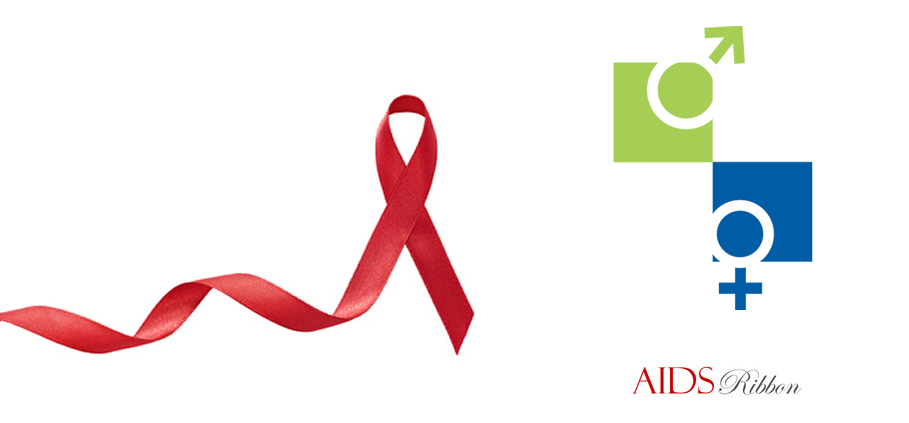Latest News
When the Body Speaks to the Soul
Prevention and Treatment of Psychosomatic Conditions
Anastasios D. Kalantzis, Surgeon Urologist-Andrologist
The two-way influence between the body and the “psyche” is most acceptable to the point that today it is considered as its normal collapse and disease if the soul is sick and suffering. Besides, the term “psychosomatic” has forced its way in our everyday vocabulary and it is therefore worth pointing out the importance of the psychological factor in our body, as well as the interaction between the body and the soul, a fact which had been included in the teachings of the ancient philosophers like Plato, who said that ”…the body sickens first and then the soul”!
The course of the interlinked and interactive relationship between the body and the soul began in the depths of the centuries to end up today, through various philosophical, psychiatric an medical approaches and interpretations, to be considered a reality. Nobody refutes or disputes anymore that a physical dysfunction unfavorably affects our psychological condition – or that a bad psychological state impairs the proper function of the body and makes it sick.
For the sake of truth, we should mention that the word “stress” is occupying more and more prominent position in the Preventive Medicine catalogues, concerning many diseases. Most indicatively is its contribution to heart attacks, which nowadays costs thousands of lives, seemingly out of the blue.
Scientific Approach
It is now a scientifically proven fact that the three main systems of the human body – the neurological, endocrinal and immune systems are interconnected.
Very simply, this means that the feelings and the body are not two separate entities, but they are organically interdependent. All we have to do is think that the chemical substances that more widely act in both the brain and the immune system are also those we find more often in the nerve areas that regulate the feelings.
One of the most convincing proofs regarding the immediate connection of feelings and immune system is attributed to Dr. David Felten, Vice President for Research, and Medical Director of the Beaumont Research Institute at the William Beaumont Hospitals in Royal Oak, MI., former director of the Neuroimmunology Center of the Medical School of Loma Linda University of California. Starting with the observation that the feelings affect the immune system, Dr. Felten discovered that the immune cells can be receptors of the messages sent by the sympathetic nervous system and can be major participants in stress responses and their health consequences. A fact, which very simply means that a calm brain condition can significantly contribute to a person’s recovery from a disease, as well as to reduce the possibilities of their acquiring a condition in general.
Psychosomatic Medicine
Already since the 80’s, but mainly the 90’s, many prominent scientists worldwide (Seligman, Carver, Visintainer, Friedman, Oliviero, Goleman) have sustained that optimism and positive thinking affect health giving a significant advantage to cancer patients, as well as that, by curing the patients’ emotional condition together with the physical, one can achieve a very satisfactory result in terms of both prevention and cure. Indeed, there are quite a lot of scientists who consider that the disease is manifested in physical level as a symptom and in psychological level as discomfort.
By adopting this view, the psychosomatic (integrative) medicine overturns the classic framework which used to consider the damage of the organ as the cause of the dysfunction and, as a result, of the condition, and creates a new framework within which a constant and continuous stress deriving from the person’s everyday life in their struggle for survival generates the dysfunction of the organ which causes the damage, and therefore - and consequently - the condition itself.
Under this new view, the pathological phenomena started getting under the prism of multiple factors, from which the psychological factors could not be excluded. Is it coincidental that certain people have recurrent accidents? Is it coincidental that many people become sick after environmental or psychological changes such as pension, mourning, divorce or brake up, emotional or occupational disappointments? No, say many relevant researches, it is not a coincidence.
Psychosomatic Diseases
Several conditions and symptoms have already been classified as psychosomatic disorders, while the relevant list is getting continuously larger and enriched with new conditions. High blood pressure, bronchial asthma, colitis, ulcer and eczema are the “historical” conditions that affect people with great amounts of stress.
According to specialists, the following conditions can by psychogenic:
Eating Disorders, such anorexia nervosa and bulimia, which lead to extreme increase or decrease of body weight and can be life threatening.
Conditions and symptoms of the digestive tract system, where, further to colitis and duodenal ulcer, we also observe hemorrhagic colitis, chronic gastritis, gastroesophageal reflux (heartburns), pylorus spasm (pylorus is a part of the stomach), irritable or spastic bowel syndrome, constipation, diarrhea, nausea and vomiting.
Conditions and symptoms of the respiratory system, where, further to the bronchial asthma, we also observe dyspnea, hiccups and hyperventilation (prolonged, fast and deep breathing).
Conditions and symptoms of the cardiovascular system, such as arrhythmias, tachycardia crises, coronary disease, angina pectoris, heart attack, high blood pressure, migraine, cardiac neurosis and precordial pain.
Dermatological conditions and symptoms, such as psoriasis, redness in the face, acne, atopic dermatitis, pruritis (itching), neurodermatosis, hyperperspiration, dry skin, dryness of the pituitary glands (vagina or nose), premature hair whitening, anaphylaxis.
Conditions and symptoms of the musculoskeletal system, such as cramps, arthritis, torticollis (lateral flexion contracture of the neck due to a painful spasm of a muscle in the area called sternocleidomastoid muscle), myalgia, cervicalgia and cervical syndrome.
Conditions and symptoms of the urogenital system, such as menstrual pain and other symptoms, sychnuria and erectile dysfunction..
Conditions and diseases of the endocrinal system, such as hyperthyroidism, hypothyroidism, hypoglycemia, diabetes mellitus and of the pituitary (hypophysis) hypofunction (hypophysis is a brain gland).
Manifestation of psychogenic disorders
As certain doctors and psychologists claim, the psychosomatic conditions activate a defense mechanism by means of which the psychological discomfort is manifested in a direct, physical manner. In these conditions, stress, pain and generally the extremely painful emotions find a direct way out in the body, causing various physical manifestations. Why? Because there is no way to rationalize the psychological discomfort and the emotional charge which, quite simply, are not perceived by the patient.
In general terms, the psychosomatic patient appears having a good relationship with reality, a way of thinking full of facts and things but poor in sentiments. In other words, these are people who very difficultly would they express anger, fear, frustration or lack of satisfaction. Often they are patients who fail to “externalize” their emotional world, rejecting every element of imagination from their lives. Therefore, they focus all their defense mechanisms in removing every psychological content which they reject as unacceptable – but they do it in such a degree that they end up destroying their own body. In this context, the person may be incapable of getting in touch with their emotional world, and consequently they fail to perceive the anger, frustration or anxiety they experience regarding their work or anything else – let alone imagine a possible connection between their ulcer and their emotions or experiences.
Personality and Disease
A person’s character is a life compass. Introversion or extroversion, optimism or pessimism are elements that determine towards which side the scale of well-being will lean. It has been proven, for example, that the risk for cancer is increased in people vulnerable to addictions such as alcohol and smoking.
Additionally, due to the fact that the good function of the immune system is affected by psychological mood, a person may be vulnerable to infections because they are experiencing excessive and unexpressed stress, but they are unaware of it and therefore incapable of facing it. Besides, it has been observed that the psychological reaction of every patient to the diagnosis of a disease (even cancer), may affect, to a certain extent, its course. In other words, if the patient has the psychological strength to accept the disease as an evil that can be faced, they can fight it with much better results.
The above finding urged doctors, in the last few years, to talk openly to their patients about the nature and the stage of their disease, believing that everyone is entitled to be aware of their condition. At the same time, however, also the psychological support of the patient is necessary, so that they will be aided in accepting their conditions.
The positive disposition of the patient makes them stronger and combative towards the disease. In their battle, the feeling they receive from their environment is also crucial. Studies have shown that patients with cancer who respond better to therapies are those with rich social life, close friends and tight emotional bonds with their social environment. And this is because they have far more weapons against the disease since, through the positive feelings they experience, their organism produces various hormones such as serotonin (contributes to good mood) and endorphins (euphoria hormones). On the contrary, difficult emotional relationships, aggressiveness, competitiveness and anxiety become a lethal weapon that is eventually turned against us, ready to wound us, sometimes even lethally.
Psychosomatic diseases are no less real than the common diseases. Their symptoms have “flesh and blood” and can reach a climax and an unpleasant conclusion. Therefore, they are not “ghosts”, but real and existing somatic disorders. Their determining difference is located mainly to the cause that instigates the psychosomatic symptom, contrary to the common disease. Certainly it is not always easy to distinguish whether a dermatitis, a stomach colic, a cervical syndrome and other symptoms are solely and exclusively results of unexpressed psychological conflicts and difficulties. It is most probable that the causes that lie behind a somatic symptom are multifactorial. Besides, an emotional disorder or the simple everyday stress will afflict each and every one of us on our Achilles’ heel. A predisposition of the organism to show weakness or susceptibility on specific points will be activated under the burden of a bad psychological condition.
The contribution of a psychiatrist and/or a psychologist is imperative in facing such conditions. The healing process may be long and requires the proper approach on behalf of the care provider, as well as intervention to the environment of the patient. Sometimes, the most effective way to deal with a psychosomatic symptom is to identify and deal with the cause of the psychological burden. It would be advisable that the person who is in pain, even if it is a not easily identifiable mind game that has caused the pain, be handled not with suspiciousness, but with care, interest and understanding.
Documentation
1. Brill SR, Patel DR, MacDonald E. – “Psychosomatic Disorders in Pediatrics”. Indian J Pediatr. 2001 Jul;68(7):597-603.
2. Escobar JI, Rubio-Stipec M, Canino G et al. – “Somatic Symptom Index (SSI): A New Abridged Somatization Construct. Prevalence and Epidemiological Correlates in Two Large Community Samples”. J Nerv Ment Dis. 1989;177(3):140-146.
3. Fassino S. – “Psychosomatic Approach is the New Medicine Tailored for Patient Personality with a Focus on Ethics, Economy and Quality”. Panminerva Med. 2010 Sep;52(3):249-64.
4. Heinrich TW. – “Medically Unexplained Symptoms and the Concept of Somatization”. WMJ. 2004;103(6):83-7.
5. Smith GR Jr. – “Somatization Disorder in the Medical Setting”. Washington DC: American Psychiatric Press; 1991:5-9.
6. Stoudemire A. – “Somatothymia. Psychosomatics”. 1991;32(4):365-381




